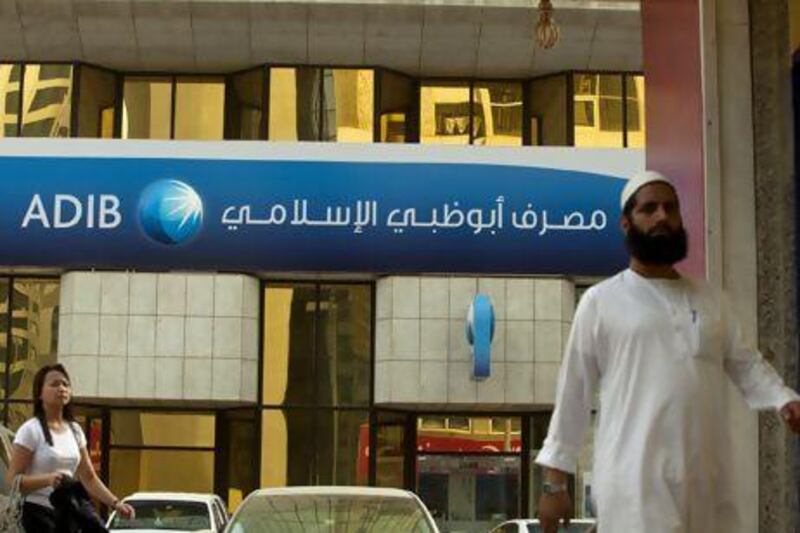Tirad Mahmoud, the chief executive of Abu Dhabi Islamic Bank, has warned of "irrational exuberance" in the UAE's corporate lending market, saying companies are seeking to lower borrowing costs by so much that banks may no longer find it appealing to lend.
Mr Mahmoud said ADIB was finding fewer opportunities in corporate lending and is instead seeking to build out its retail banking franchise with a focus on expatriates in the UAE.
"There's irrational exuberance in terms of margin compression. It's moving too fast," he told reporters attending a Ramadan event on Sunday night. "What we see is making lending less interesting for us and therefore our engagement in that area will gradually tail off."
Dubai's government-backed corporations including Emaar Properties, Dubai Duty Free, Nakheel and Jebel Ali Free Zone (Jafza) have said they have sought or obtained lower borrowing costs on about US$5 billion of outstanding bank debts within the past few months.
Mr Mahmoud attributed the trend to credit-ratings upgrades for certain companies and the willingness of some banks to accept lower margins as they compete harder for new business.
Jafza was upgraded by Moody's Investors Service to Ba3 in June, while Standard & Poor's raised Emaar Properties to BB+ in April.
Last month, Emaar was said to have requested that banks cut the margin it pays on Dh3.6bn in loans from 350 basis points to 175 basis points above Libor.
Banks have competed hard for loans in the meantime, with regional banks including Qatar National Bank and Doha Bank earmarking billions of dollars for their UAE operations this year.
Banks in the Emirates grew their loan books by Dh32bn to Dh1.1 trillion in the first five months of the year, a greater increase in net lending than the total of Dh28.1bn in new credit during all of 2012, according to the latest data from the Central Bank.
Some banks have been more reluctant to lend, with HSBC showing no change in total lending during the year so far as it reported quarterly profits yesterday.
Mr Mahmoud is a rare voice urging caution over the UAE economy, where a surge in tourist arrivals and Dubai property prices have helped to propel local bourses to some of the highest year-to-date gains worldwide.
Bank shares have hit all-time highs in anticipation of a flood of institutional capital brought by the UAE's upgrade to "emerging market" status by MSCI in June.
Dubai's five-year credit default swaps, which insure the emirate's government debts against missed payments, have fallen 96 basis points during the past year.
The reference to "irrational exuberance" echoes a warning by the former United States Federal Reserve chairman Alan Greenspan in a speech in 1996, in which he discussed central banks' difficulty in identifying asset bubbles before they burst.
The phrase gained notoriety after US equity markets plummeted following the dotcom crash, then once again at the onset of the global financial crisis in 2008.





